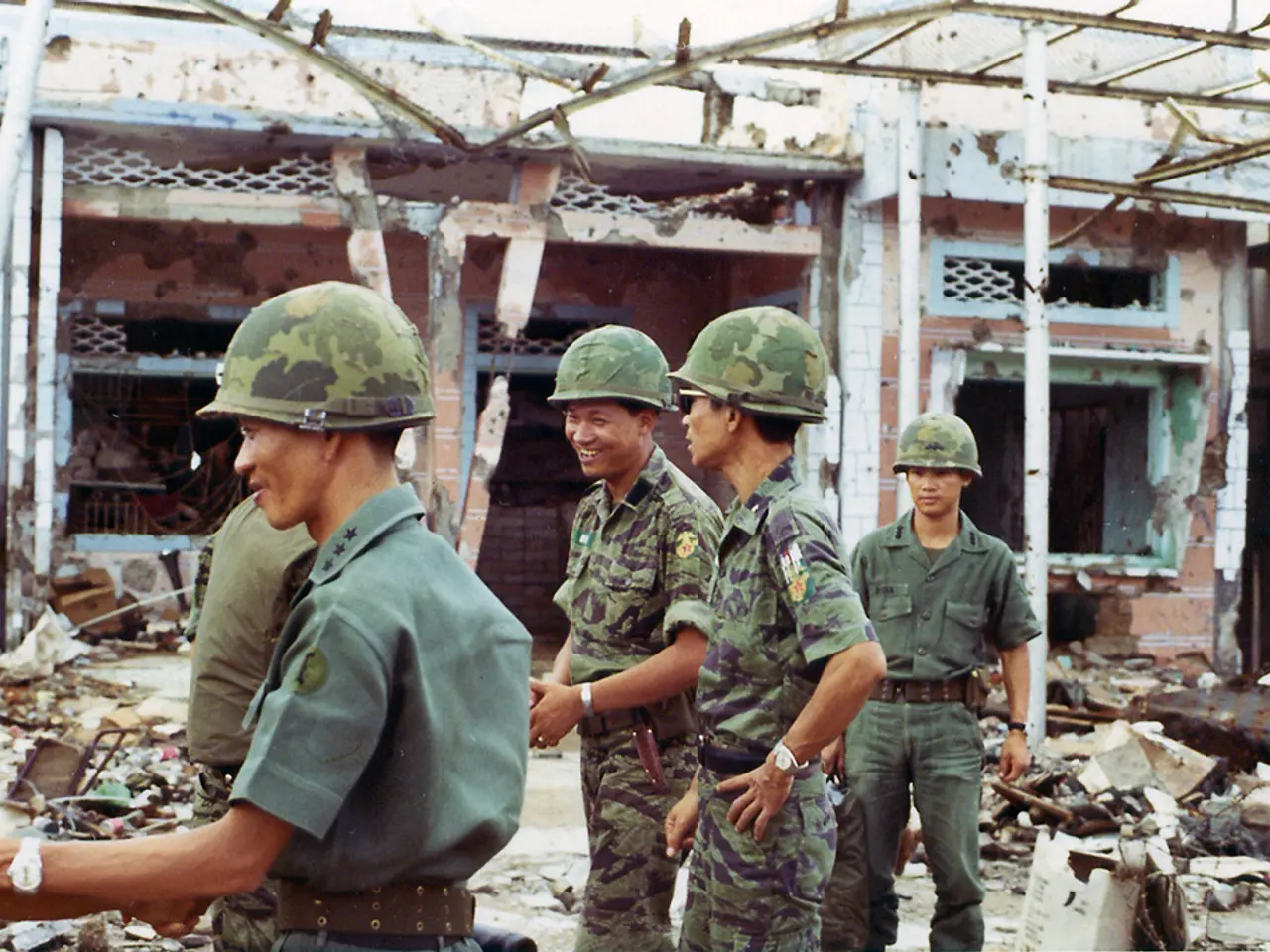Intense bombing of Gaza City by Israeli forces continues, while Hamas engages in negotiations in Egypt
In the Palestinian territories, a humanitarian emergency is unfolding as the delivery of essential supplies to Gaza has been severely hampered by new Israeli regulations. Jolien Veldwijk, director of CARE in the Palestinian territories, has expressed concern that the restrictions are leaving civilians without the food, medicine, and protection they urgently need.
According to the Hamas-run health ministry in Gaza, the total number of deaths due to malnutrition and hunger since the war began is 239, including 106 children. The new Israeli rules have had a severe impact on foreign aid delivery, with over 60 aid delivery requests rejected in July alone. This has left millions of dollars’ worth of food, medicine, water, and shelter supplies stranded in warehouses outside Gaza.
The Israeli authorities' new NGO authorization and registration rules use vague, politicized criteria to deny or delay NGO registration. This has been widely criticized by over 100 international organizations, including Doctors Without Borders (MSF), Oxfam, and others, as it hampers urgent humanitarian relief and violates principles of international law.
The new registration system also forces organizations to share sensitive personal information about Palestinian staff, often against their home countries' laws, limiting their ability to operate safely and protect civilians. Additionally, ongoing hostilities and the looming Israeli ground offensive further restrict humanitarian access to Gaza, exacerbating the humanitarian crisis.
Local health authorities have received desperate calls from families trapped in the Zeitoun area, including from people saying they were wounded, and ambulances could not reach them. The situation is further complicated by ties between foreign-backed aid groups and the Israeli government, which have long been strained, with officials often complaining the organisations are biased.
Israeli authorities have rejected at least 60 requests from NGOs to bring aid into Gaza in July alone. In response, charities and humanitarian organisations have called for the Gaza Humanitarian Foundation (GHF) to be shut down due to "routine" shootings and "repeated massacres in blatant disregard for international humanitarian law".
Israel has accused Hamas of stealing aid entering the enclave and has relied on the US-backed Gaza Humanitarian Foundation (GHF) to manage food distribution centres since May. Amichai Chikli, Israel's Diaspora Minister, stated that organizations that have no connection to hostile or violent activity and no ties to the boycott movement will be granted permission to operate.
Despite the challenges, aid groups remain determined to deliver essential supplies to those in need. CARE, for example, has not been able to deliver any aid to Gaza since Israel imposed a full blockade on the Palestinian territory in March. The organization continues to advocate for the lifting of restrictions and the resumption of humanitarian aid delivery.
References:
- Al Jazeera
- The Guardian
- Reuters
- UN OCHA
- Human Rights Watch
Read also:
- Weekly happenings in the German Federal Parliament (Bundestag)
- Southwest region's most popular posts, accompanied by an inquiry:
- Discussion between Putin and Trump in Alaska could potentially overshadow Ukraine's concerns
- Massive 8.8 earthquake hits off the coast of Russia's Kamchatka Peninsula, prompting Japan to issue a tsunami alert.








